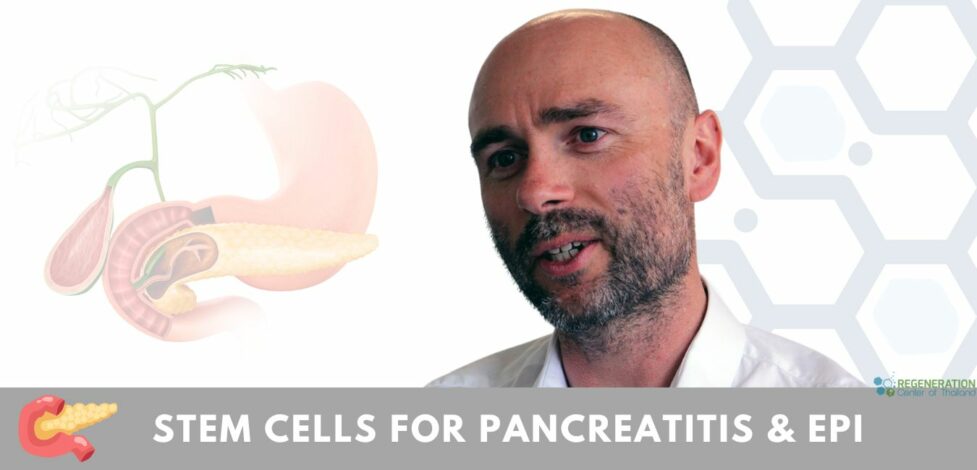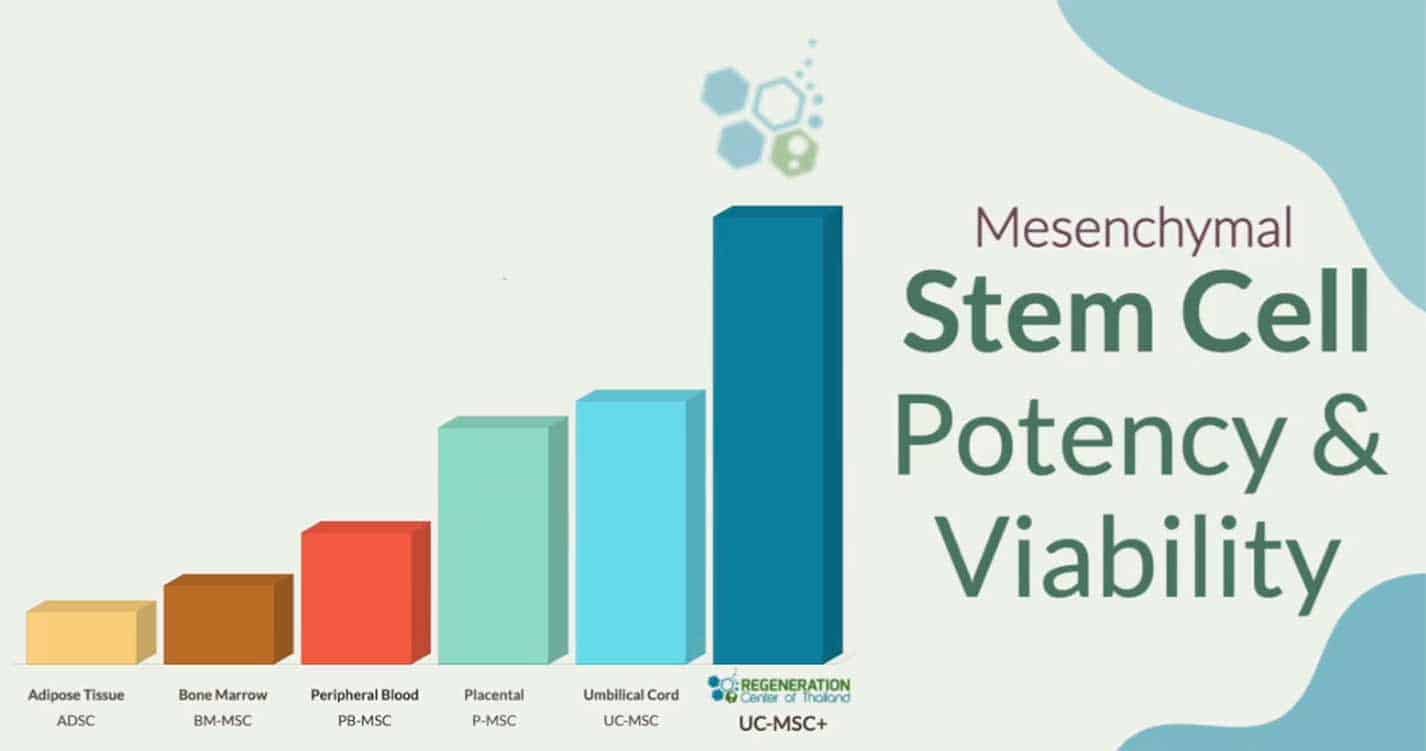Since the early 1970’s, Researchers have been busy working on the further development of basic pancreatic trypsin inhibitor that later become the very model for the rapid development of protein NMR,stem cell therapies,molecular dynamics, regenerative medicine and also for experimental studies such as the world’s first artificial pancreas in medical laboratories throughout the world.
Islet Cell Transplants for Pancreatitis
Each year, hundreds of thousands of people around the globe experience having some sort of pancreatitis. Pancreatitis is defined as the inflammation of the pancreas. Pancreatitis occurs when the enzymes trypsin become activated. If you suspect that you may have pancreatitis, it is very important that you consult with a Pancreatic specialist or Endocrinologist in your home country immediately. There are several reasons why we develop pancreatitis but the overwhelming cause for most pancreatitis is due to frequent alcohol intake and gallstones. Eating and drinking habits play the biggest role in those afflicted with this degenerative disease.
Causes for Pancreatitis Pain
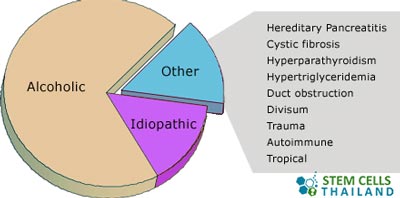
Warning Signs & Symptoms
Just like any other medical condition, there are physical signs and symptoms that will manifest themselves. The usual symptoms for pancreatic failure include:
- Severe abdominal pains
- Drastic weight loss
- Frequent vomiting
- Nausea.
Those who suffer from pancreatitis may also experience high blood pressure. If left untreated, chronic pancreatitis and autoimmune pancreatitis symptoms can lead to inflammatory bowel diseases such as Crohn’s disease, diabetes, diabetic neuropathy, Lupus or pancreatic cancer.
Acute vs Chronic Pancreatitis
Most clinical studies have proven that the leading causes of pancreatitis are attributed to alcohol and gallstones. For chronic pancreatitis, alcohol is the common etiology while acute pancreatitis is attributed to gallstones. Chances are if you like to drink a lot and you have a sedentary lifestyle, you are putting yourself at a huge risk of developing liver Cirrhosis, kidney disease, Erectile dysfunction , heart disease and/or chronic pancreatic disease.
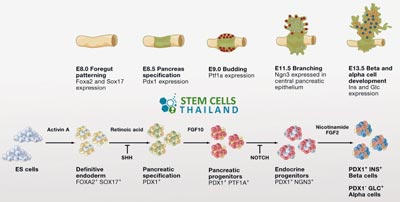
Some medications can also lead to pancreatitis. Based on clinical research conducted by the US Food and Drug Administration, prescription medications such as clozapine, olanzapine, and risperidone are big contributors to premature pancreatitis. Other medications linked to pancreatitis include vildagliptin, HIV drugs, pentamidine, the anticonvulsant valproic acid, and diuretics to name a few. Other causes are attributed to high blood calcium, hypothermia, mumps, scorpion stings, trauma, and high blood triglycerides.
Chronic Pancreatitis & chronic relapsing pancreatitis
Chronic Pancreatitis is a progressive disorder of the pancreas from continuous inflammation over an extended period of time that has resulted in the destruction of pancreatic secretory cells. This state leads to progressive replacement of pancreatic parenchyma of the fibrous connective tissue, frequent abdominal pain, and failure of exocrine and endocrine pancreatic function.
- Pancreatic endocrine insufficiency is diagnosed when insufficient secretion of pancreatic endocrine hormones such as insulin, glucagon, ghrelin, somatostatin and and pancreatic polypeptides
- Pancreatic exocrine insufficiency (PEI) is also known as exocrine pancreatic insufficiency is diagnosed with there is insufficient secretion of sodium bicarbonate (ductal function) or pancreatic enzymes (acinar function)
There are several type of Chronic Pancreatitis including:
- Autoimmune pancreatitis (steroid-responsive pancreatitis)
- Chronic obstructive pancreatitis
- Chronic calcifying pancreatitis
- Type 1 autoimmune chronic pancreatitis (pancreatic manifestation – immunoglobulin G4-related disease)
- Type 2 autoimmune chronic pancreatitis (Idiopathic duct-centric chronic pancreatitis)
- Tropical pancreatitis (fibrocalculous pancreatic diabetes)
- Groove pancreatitis which primarily affects pancreatic duodenal groove
- Pure form where scar tissue affects pancreatic groove only.
- Segmental form occurs when scar tissue extends to dorso-cranial portion of the pancreatic head and there is stenosis found in the main pancreatic duct
- Segmental Form can appear similar to pancreatic cancer
- Duodenal dystrophy
- paraduodenal (duodenal) wall cysts
- Paraduodenal pancreatitis
- Cystic dystrophy of heterotopic pancreas
- Pancreatic hamartoma of the duodenal wall
- Brunner’s gland hamartoma
- Myoadenomatosis
Dangerous Infectious Agents
Aside from medications and your eating/drinking habits, there are also infectious agents that are linked to pancreatitis and axial spondyloarthritis (axSpA). Certain viruses like Varicella-zoster virus, Mumps, Herpes simplex virus, Hepatitis B, Cytomegalovirus and Coxsackie virus. Bacteria like Legionella, Salmonella, and Mycoplasma along with fungi and parasites can also cause lead to necrosis of pancreas and pancreatitis.
How to Avoid Pancreatitis
With the kind of lifestyle that people have these days, it is not surprising that many would have to suffer from pancreatitis. To lessen the risk of developing this painful disease, it is important to live a healthy life. Try to avoid over-consumption of Alcohol and avoid oily and fatty foods. Regular exercises annual medical checkups can help identify the early signs and symptoms attributed to pancreatitis. Prevention is the best cure.
Stem Cell Treatment for Pancreatitis in 2024
The treatment of pancreatitis with pancreas islet cell transplants is a safe and natural treatment for early or late stage severe pancreatitis. Our pancreas regeneration protocol looks to naturally reverse damage caused by years of poor habits. Your bodies multipotent stem cells are produced naturally in the bone marrow and are constantly be released naturally to heal any damaged or 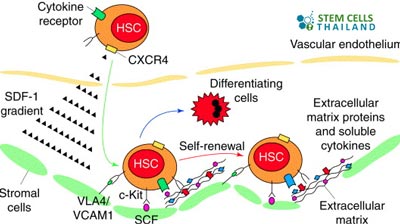 dysfunctional organ in the body [1]. The cells are naturally attracted to injured tissues thanks to the organ releasing specific chemical signals or by the stimulation of Chemokines or small cytokines from the brain in natural response to an injury to your body or tissue. Stem cells have the ability to “home” or find their way to the site of injury and use paracrine cell signaling to transform themselves into exactly the same type of cell tissue that is damaged due to their incredible plasticity.[2]
dysfunctional organ in the body [1]. The cells are naturally attracted to injured tissues thanks to the organ releasing specific chemical signals or by the stimulation of Chemokines or small cytokines from the brain in natural response to an injury to your body or tissue. Stem cells have the ability to “home” or find their way to the site of injury and use paracrine cell signaling to transform themselves into exactly the same type of cell tissue that is damaged due to their incredible plasticity.[2]
Our medical team has developed the most complete Pancreas cell isolation and restoration treatment protocol with assisted therapeutically dosages targeted specifically for the damaged pancreas cells to engraft with the tissue and grow to repair the damage and re-establish a functioning pancreas without needing invasive surgery or transplants.[3]
Pancreas Regeneration
Damage to the pancreas is a very serious matter. If you are experiencing any signs or symptoms of pancreas disease, we strongly suggested that you go to your primary care physician right away. Some prescription medications are helpful in relieving the pain, however reversing the disease or damage is not something that can be accomplished with any pharma based medications on the market. Depending on the severity of the diagnosis back in your home country, you may only be offered surgery or worst yet a total pancreas transplant which carries other inherent risks. The Regeneration Center offers an effective protocol depending on the needs of an acute pancreatitis patient versus those who severe or chronic pancreatitis. We also offer post pancreatic cancer cell therapy for those who have already been treated and are looking to recover sooner rather than later.
TREATMENT PRECAUTIONS & RISKS
Please note, not everyone is an ideal candidate for Islet cell transplants or healing pancreas naturally. A large percentage of treatment requests cannot be approved due to the severity of the patient’s underlying condition or due to the inability to travel to Thailand for the estimated 10-14 day treatment course.Treat Pancreatitis Naturally
Total Number of Stem Cell Infusions will depend on patient needs. Several stages may be required for severe conditions.
Types of Cells Used and Delivery Method:
Mild to moderate conditions may be treated using Autologous cells that are derived from the patient’s peripheral Blood, Adipose Tissue, or bone marrow. For moderate to severe cases, a combination treatment using enhanced Allogeneic stem cells from Cord Tissue, or Placenta (whartons Jelly) will be required. Our modern stem cell treatments do not require dangerous and invasive surgeries and the delivery of the expanded MSC+ cells + growth factors will are done via a guided scanners (when necessary) or more commonly through an Intravenous Drip, Direct injection or Intrathecal infusions.
Post-Treatment Rehabilitation: Physical Rehabilitation post-treatment is optional and available upon request. Physical rehab services can be provided in Bangkok, Chiang Mai or Phuket for 2-4 hours per day and up to 5 days per week. Medical visas, hotel accommodations, and all ground transportation can also be included at an additional cost upon request.
Treat Acute Pancreatitis With Stem Cells
Requirements for cellular and molecular gastroenterology depend entire on patient needs. Our treatment for Acute Pancreatitis with isolated pancreatic islet cells, endogenous β-cells & β-like cells will require a minimum of 2-3 weeks in Bangkok. Due to the varying degrees of damage and the stage of the disease our medical team will need to qualify the potential patient to better understand their needs. Upon review and acceptance, a detailed treatment plan will be provided that will include the day by day treatment calendar including specifics of the medical protocol, the total number nights required along with the total medical related costs (excluding accommodations or flights). To begin the qualification process for our multi-stage functional medical therapies please prepare your recent medical records and contact us today.
Published Clinical Citations
[1] ^ Matsumoto, Shinichi. 2011. Clinical allogeneic and autologous islet cell transplantation: update. Diabetes & metabolism journal, no. 3 (June 30). doi:10.4093/dmj.2011.35.3.199. https://www.ncbi.nlm.nih.gov/pubmed/21785738
[2] ^ Suşman, S, D Rus-Ciucă, Olga Soriţău, C Tomuleasa, R Buigă, D Mihu, V I Pop, and Carmen Mihaela Mihu. 2011. Pancreatic exocrine adult cells and placental stem cells co-culture. Working together is always the best way to go. Journal of morphology and embryology = Revue roumaine de morphologie et embryologie, no. 3 Suppl. https://www.ncbi.nlm.nih.gov/pubmed/22119816
[3] ^ Velpula, Kiran Kumar, Venkata Ramesh Dasari, and Jasti S Rao. 2012. The homing of human cord blood stem cells to sites of inflammation: unfolding mysteries of a novel therapeutic paradigm for glioblastoma multiforme. Cell cycle (Georgetown, Tex.), no. 12 (June 15). doi:10.4161/cc.20766. https://www.ncbi.nlm.nih.gov/pubmed/22684297

